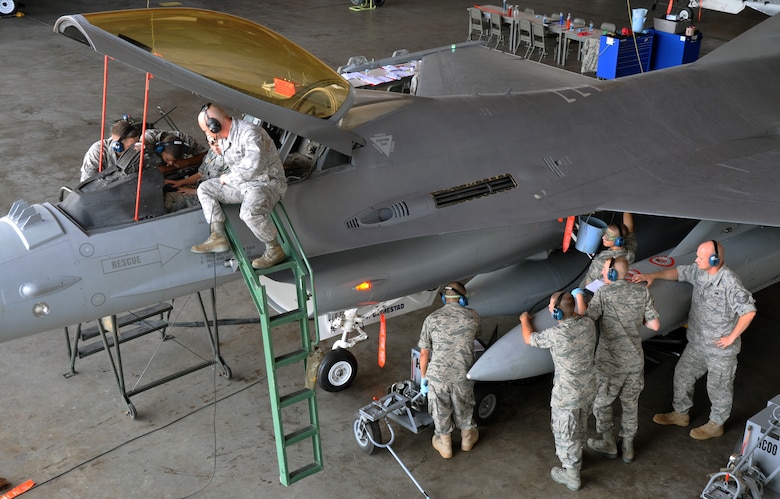Air Force Landing Gear Program
WASHINGTON (AFPN) - Air Force Medical Service officials are releasing a prevention education program that provides focused education specifically targeted at Airmen at risk for Post Traumatic Stress Disorder, or PTSD, and other deployment-related mental health problems.Entitled Landing Gear, the training fulfills existing requirements for pre-exposure preparation training and reintegration education, according to Lt. (Dr.) Steven Pflanz, architect of the new program and commander of the 579th Medical Operations Squadron at Bolling Air Force Base, D.C.The training has 'been re-engineered to provide sharply focused information of critical use to deployers, wingmen, supervisors, and leaders without expanding the training footprint,' Colonel Pflanz said. 'The program meets the needs of deployers without expanding training time; the training load was simply repackaged for greater utility to Airmen.' With the ongoing war against terrorism, Airmen remain vulnerable to the long term effects of exposure to battlefield trauma, such as Post-Traumatic Stress Disorder and other deployment-related mental health problems,' he said.

Landing Gear Nyc
'Landing Gear will help minimize this risk.' Exposure to battlefield trauma places Airmen at risk for PTSD and other mental health problems, according to AFMS mental health officials, who noted that even though 20 percent of Airmen are exposed to serious traumatic events in theater, less than one percent develop PTSD.Trauma exposure is the most powerful predictor of problems following deployment. Officials said all high-risk groups such as security forces, explosive ordnance disposal Airmen and medics face higher rates of trauma exposure. Airmen with a history of trauma exposure are 2-4 times more likely to develop PTSD, according to Colonel Pflanz, a former senior psychiatry policy analyst for the Air Force surgeon general.While most Airmen exposed to trauma will recover without assistance or complications, a small subgroup of Airmen with serious traumatic stress symptoms are less likely to recover without help, and prompt medical intervention such as psychotherapy greatly improves outcomes. Landing Gear serves as a bridge to care designed to increase the identification of Airmen suffering from traumatic stress symptoms and connect them with appropriate helping resources, Colonel Pflanz said.' The program is based on the metaphor that, no matter how powerful an aircraft is in the air, properly functioning landing gear is necessary to safely launch and recover,' he said.
'Effective risk recognition and help-seeking behavior are the functional equivalent of landing gear for Airmen.' A key feature of Landing Gear is that it provides a standardized approach to mental health requirements for pre-exposure preparation training for deploying Airmen and reintegration education for redeploying Airmen. The program was designed with high-risk Airmen in mind, but will be beneficial to all deployers.
Air Force Landing Gear Program 2017
The course offers a standardized but flexible lesson plan that can be expanded or contracted to meet audience needs.The course content was built around Air Force operational language to address topics of relevance to deploying Airmen. Each of Landing Gear's core subject headings is linked to operational metaphors. These include: Deployment Stress (Pre-Flight Checklist); Deployed Environment (Gear Up); Typical Reactions (In Flight); Reintegration and Reunion (Recovery to Home Station); Prevention (Routine Maintenance & Inspection); Getting Help (Troubleshooting & Repair).Detailed instructions are provided in course materials available on-line at http://airforcemedicine.afms.mil/landinggear.